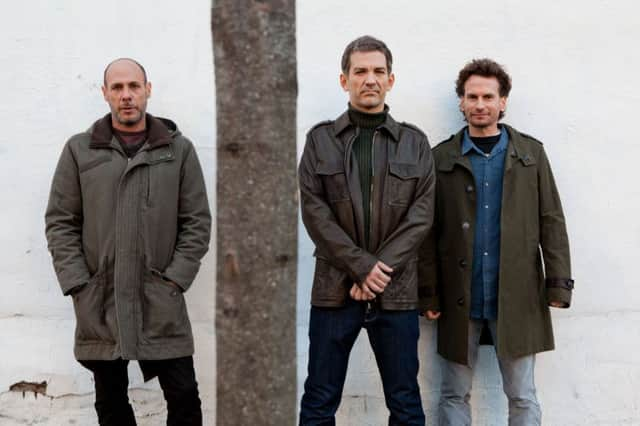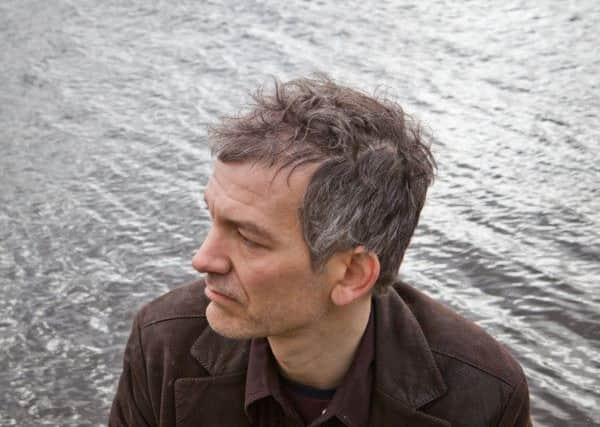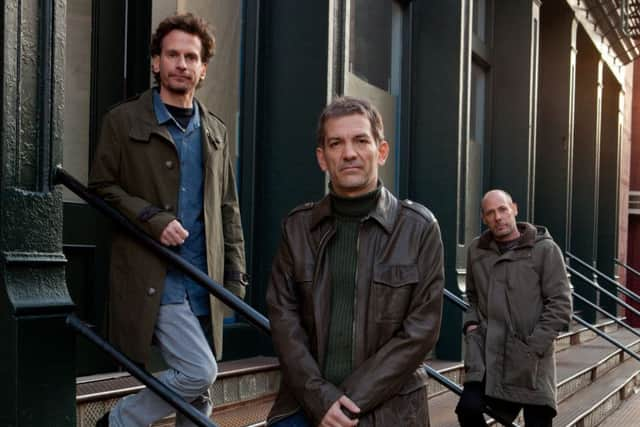Music interview: Brad Mehldau on the art of the trio and more


Few musicians have made quite the same impact on the course of contemporary jazz as Brad Mehldau. Over the course of 25 years, the pianist from Jacksonville, Florida, has established himself as a player, composer and arranger of exceptional talent, with an interest in pop, rock and classical music.
His ability to play different melodies with separate hands has been highly influential and he has recorded with the likes of Pat Metheny, Charles Lloyd, Renee Fleming and Anne Sofie von Otter.
Advertisement
Hide AdAdvertisement
Hide AdNext week he brings his trio to the UK for a short run of concerts that start at the Howard Assembly Room in Leeds.


Why has the trio format been so important for you over the last 20 years? Is there something particularly special about its dynamic?
It’s hard to say but I guess the trio format seems to afford the possibility of being a leader and also being on relatively equal footing with the other two musicians. Some of my favorite music in small group jazz is not trio – quartet or quintet – but when I’m in those other formats, I feel more a part of a rhythm section, and enjoy disappearing into someone else’s musical vision.
Your 2002 album Largo is frequently cited by young pianists as a major influence. Did you feel when you were making that record that you wanted to push boundaries of modern jazz?
Advertisement
Hide AdAdvertisement
Hide AdI’ve never had the feeling ahead of time of trying to do something in a larger “meta” sense – what I might be doing for the larger scene, I really don’t know until after it’s happened, and even then – I don’t really know. It’s mostly about local things going on in my vicinity, and in the case of Largo, it was very much a desire to collaborate with the producer, Jon Brion, who really inspired and influenced me during that time.


You have in the past performed songs by Nick Drake and Radiohead. What was it about their work do you feel that lent itself to jazz interpretation?
I don’t know if they are particularly open to jazz interpretation more than other music. There is simply the transformative experience I have as a listener, that then translates into playing their music. I’m a fan first and foremost - that’s the short answer. If what I do with their music resonates with other people – fantastic, good day for me.
You have worked with the saxophonist Joshua Redman a number of times over the years – most recently on the concert album Nearness. Does he feel like a kindred spirit?
Advertisement
Hide AdAdvertisement
Hide AdAbsolutely. We’re Gen-X brothers. Self-questioning, parsing everything. I hear it in the way we improvise together.


The interplay between yourself and the mandolin player and singer Chris Thile on your new album is intriguing. Was that very much an intuitive collaboration?
Yes. Chris feels like a jazz musician to me in the best sense of the word - a real improviser and deep listener, grabbing what you do and developing it further. It’s very easy to be creative with him, and his fearlessness as a performer is inspiring. I wish I could sing like him.
What were the musical touchstones for you when you were working on your album with Mark Guiliana, Taming The Dragon?
Advertisement
Hide AdAdvertisement
Hide AdPink Floyd, Rush, 70s Herbie Hancock records like Secrets, 80s synth pop like Pet Shop Boys, Tangerine Dream, Gentle Giant, Mike Oldfield, Massive Attack, lots of others no doubt. And most of all, Mark Guiliana, and his inspiring, very singular approach to rhythm and sound.


The two sides of your playing – improvisational and formal – have often been noted. Is the fascination for you exploring that line between the two?
Yes, definitely, and how that line blurs. Chopin wrote in a letter, explaining his compositional process – I paraphrase: “I improvise something spontaneously, completely perfect already. And composing for me is then trying to go back - pulling my hair out in agony – and put to paper what fell out perfectly without writing anything down.” Composition is often a kind of mutilated improvisation – the intuition is lost, it comes out in chunky, ungainly written form. This is the romantic view of the matter. But the opposite is equally true: Improvisation is a big, sloppy, ungainly composition, flabby at best. The best improvisers and composers reconcile the two. The implication in all that is that one discipline can’t exist without the other. Or maybe that’s just some rubbish I tell myself because I happen to improvise and compose!
You’ve occasionally played solo tours. Does it allow you to be more free form in your approach as well as your set list?
Advertisement
Hide AdAdvertisement
Hide AdYes. There is a formal freedom available, because there is no need to tell another musician what your next move is. If you are in the middle of a tune and decide you want to sit on a particular lotus leaf for a while before continuing the journey, that’s just fine – the train won’t fall off the tracks. Yet with that freedom comes responsibility, and that responsibility is towards the audience. Solo playing is a direct confrontation with the audience – they are your foil. That’s how I see it anyways, or how I feel and experience it in a performance.
How would you say your playing and composing has changed over the years? When you listen to your recordings can you hear a steady evolution?
Not really. I see constant obsessions, just like in life – constant unresolved questions.
Brad Mehldau Trio play at Howard Assembly Room, Leeds on May 16. www.bradmehldau.com